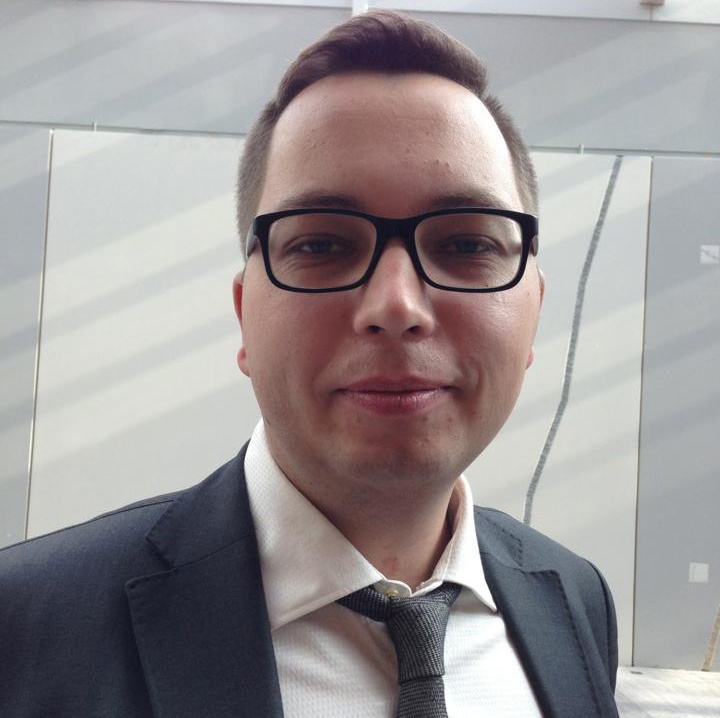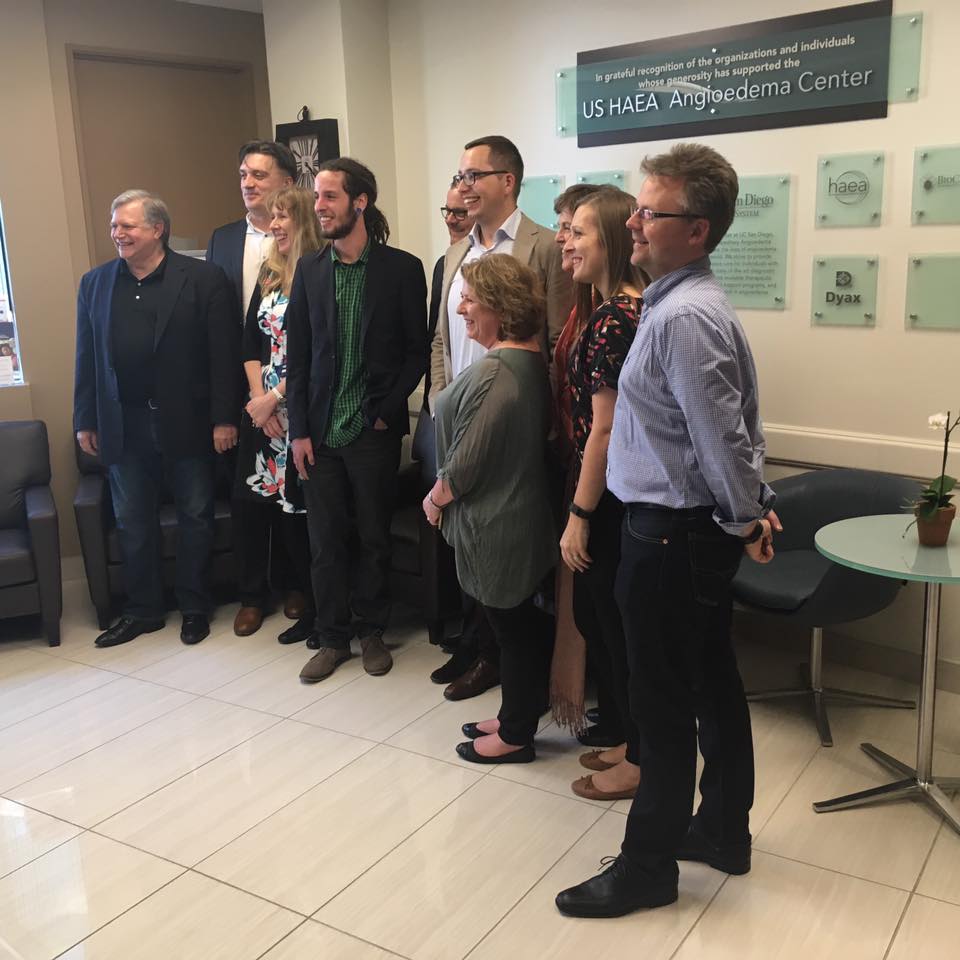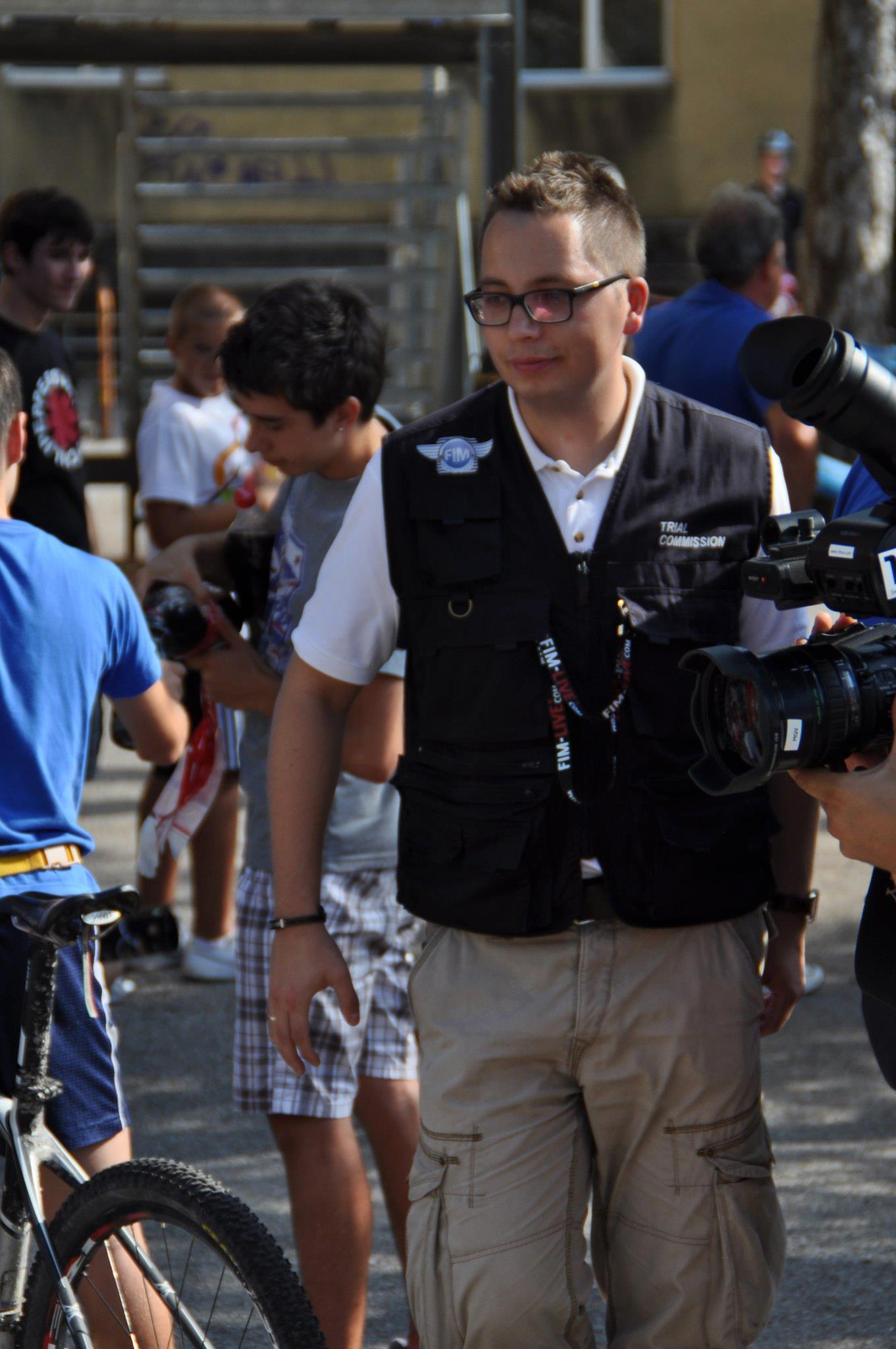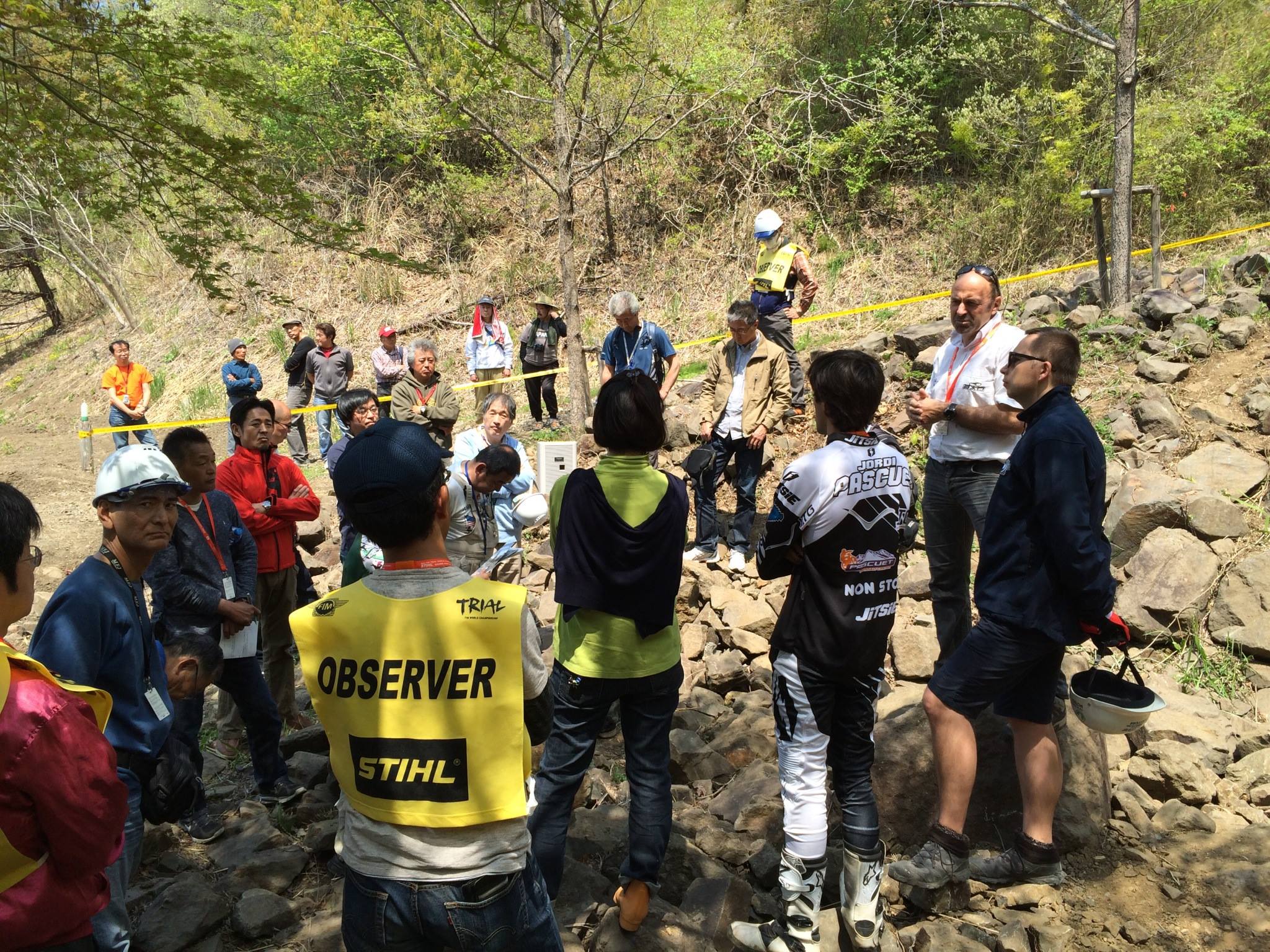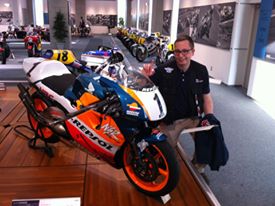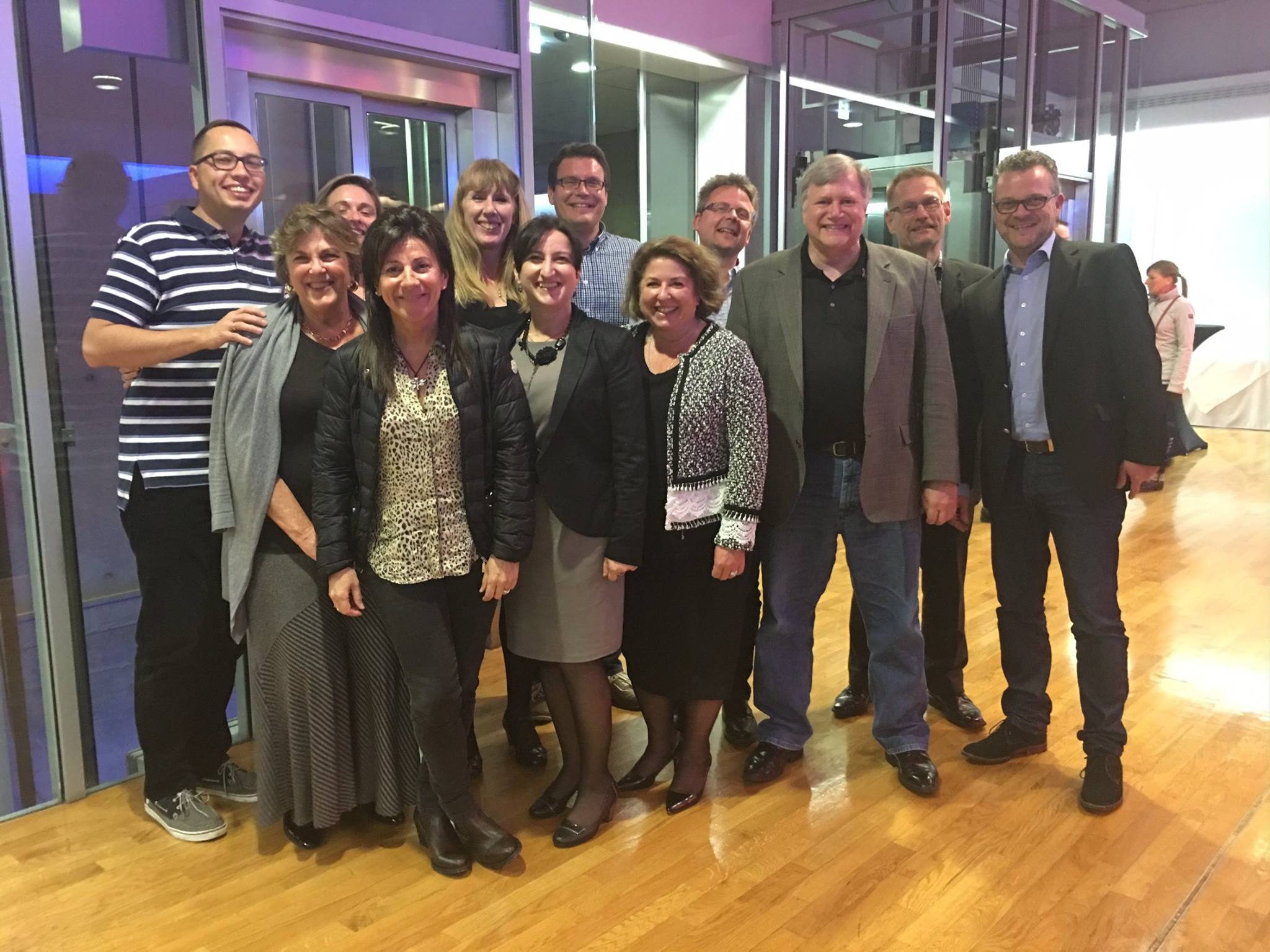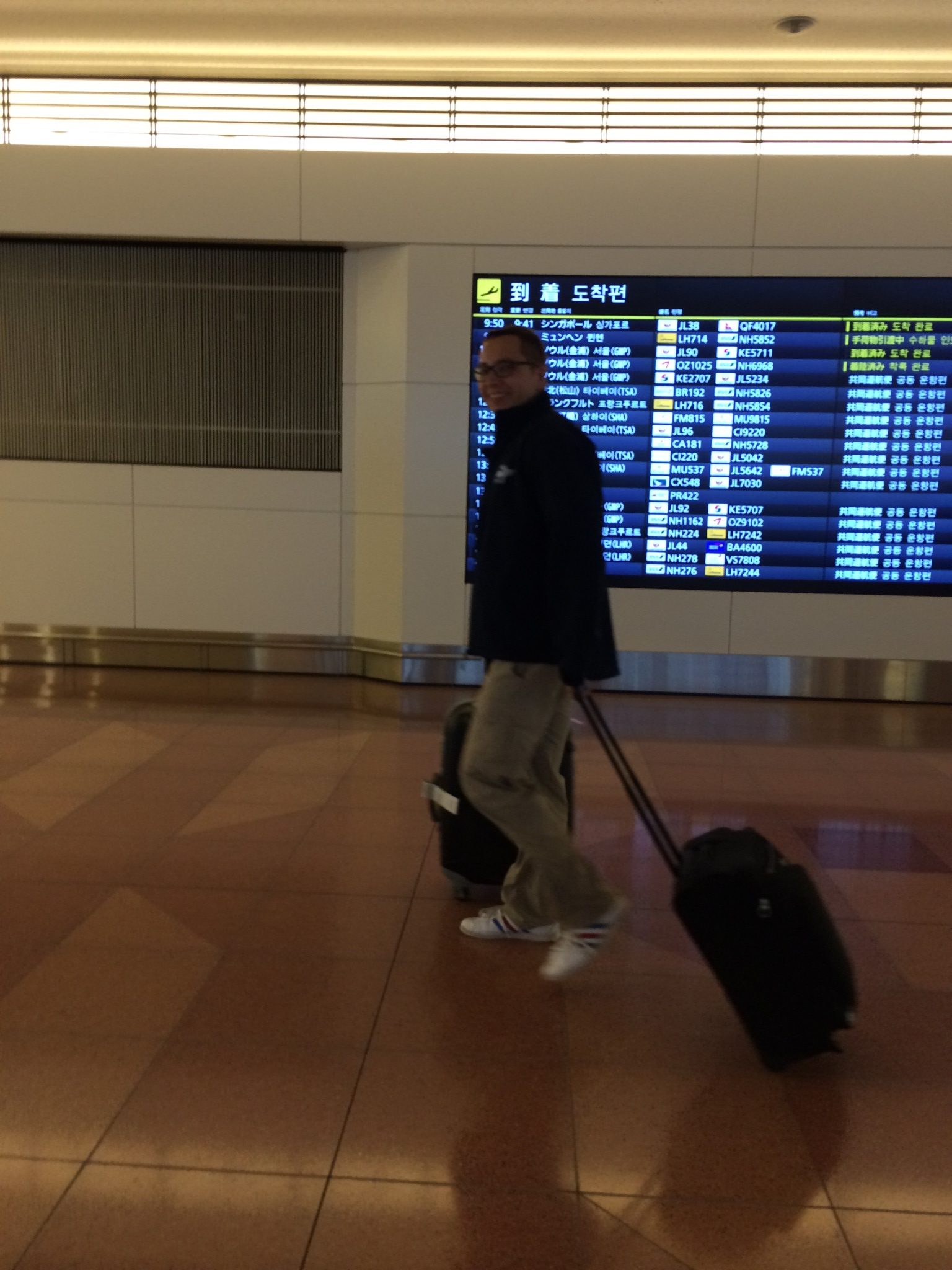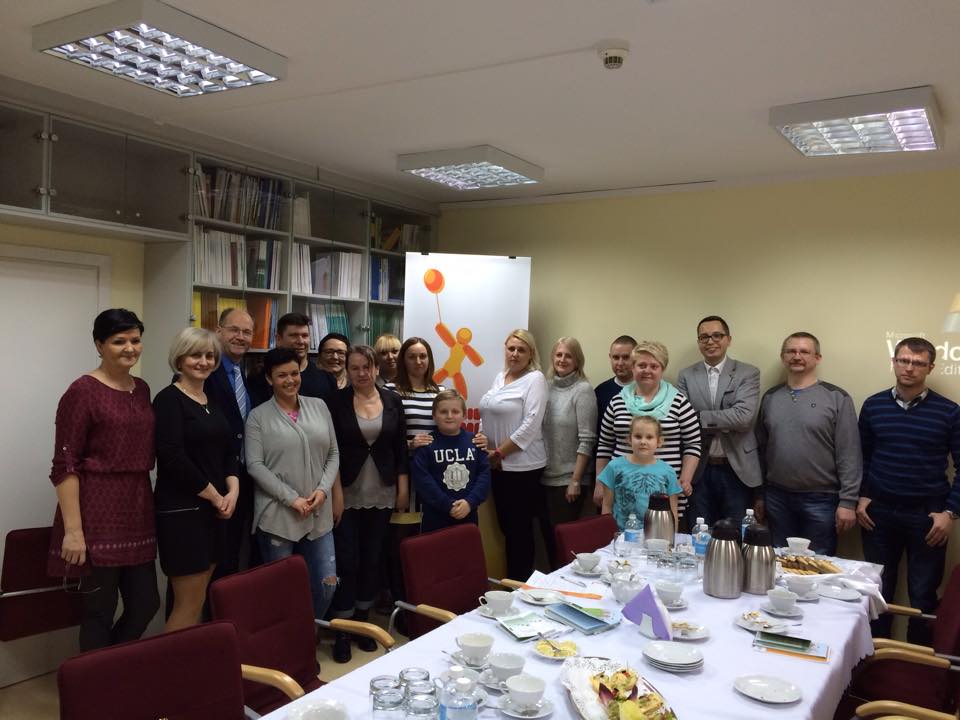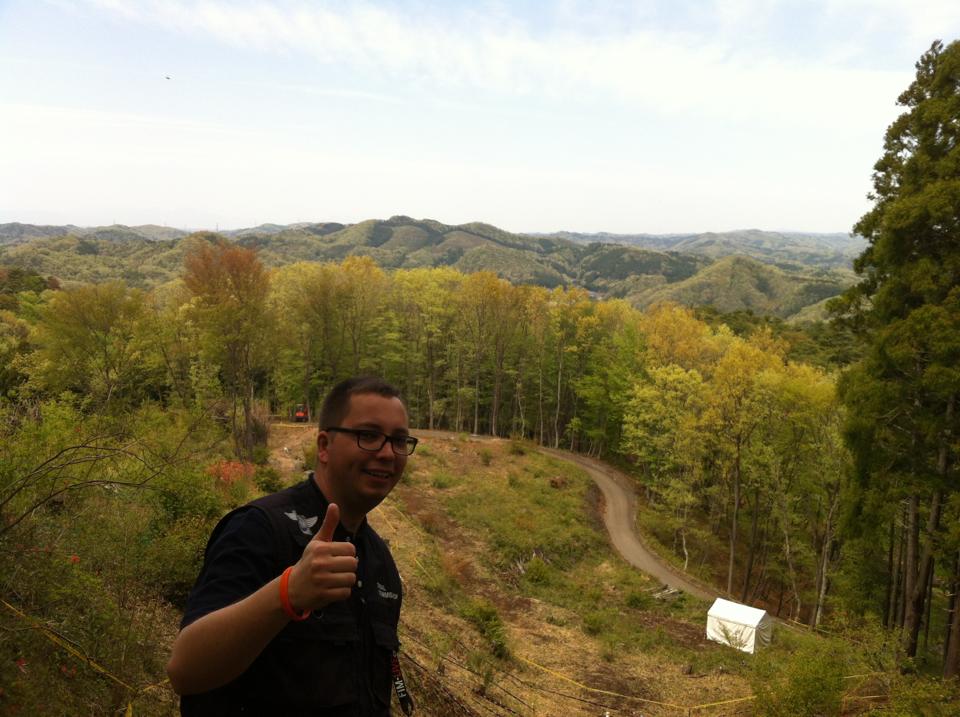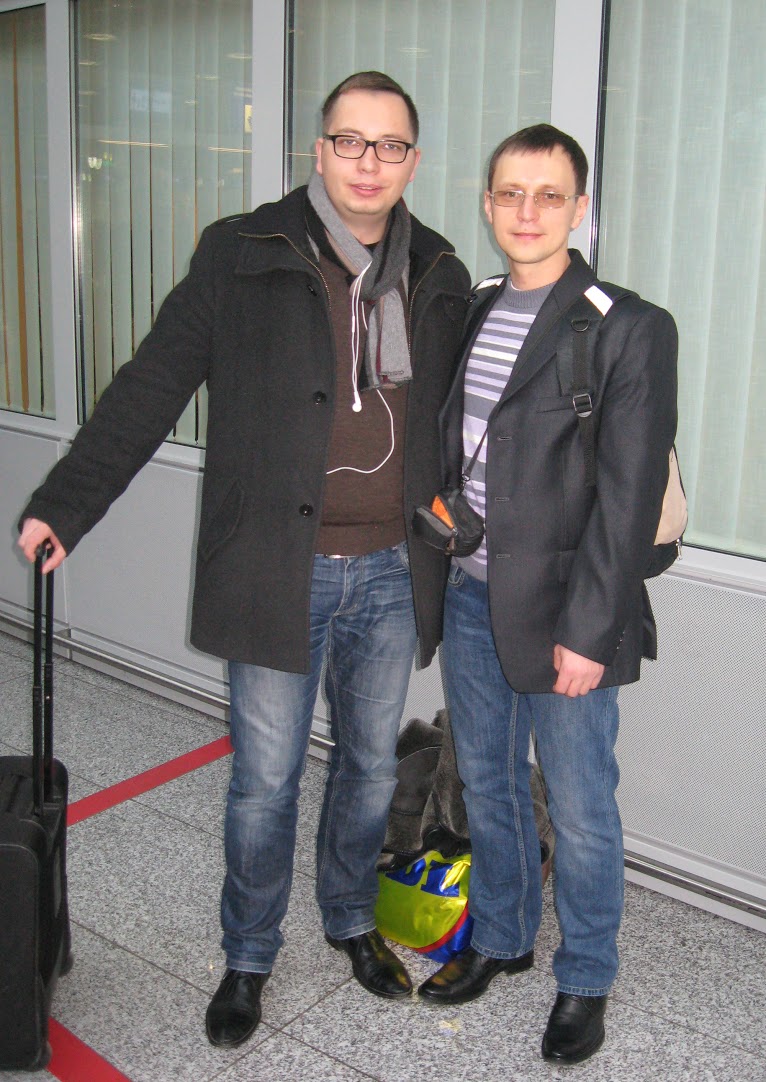MICHAL RUTKOWSKI,
POLAND (1980)
When he was a teenager, basketball meant almost everything to Michal Rutkowski (Poland). He spent hours practicing and game time was the most important of the week. It happened often that during that particular day he had an HAE attack, but somehow he was able to convince the body to pause with the edema, at least during game time.
When I was a teenager, basketball meant almost everything to me. I spent hours practising and game time was the most important time of the week. It happened several times that during that particular day I had an attack and mostly it eliminated me from the game. However, I remember the playoffs, the most important time for the player during the season. I woke up in the morning with my right hand “occupied” with some edema, and as I am right-handed it might have been a disaster. But somehow I was able to convince my body to pause with the edema, at least during game time. It helped as the edema did in fact pause, I played the game – and we won. I can’t explain it, but probably the adrenaline level and intensity helped me a little.
At that time I went to a high school that I choose due to its great educational level and a very good basketball team. Up to that point, attacks had been part of my life. They were coming and going – mostly in the form of severe abdominal episodes once a month. I also had external swellings, sometimes making my basketball development more difficult. However, there was never any drama due to my condition. Finally, in late August 1997, a day after I had returned from my summer holidays in France, I started to swell in the mouth. My family immediately decided to go to the otolaryngology department of the hospital, where my uncle used to be on the management team. The edema was growing and no treatment made by the physicians could stop the progress. Therefore it was decided that I was going to stay in hospital in order to be monitored properly.
And then there are 14 days missing from your life?
Indeed. I stayed at the hospital, I fell asleep – and the next thing I remember is when the physicians woke me up after two weeks of pharmacological coma. It turned out that I had a huge, severe larynx edema and during the night I had started to suffocate. I was intubated and put in a coma and during that period the doctors made every possible kind of checkup to find out what was causing the edema. Obviously, this event was quite traumatic for my family, especially for my mother. In the end I was taken out of the coma and could return to school – but still without a proper diagnosis.
Was that your first laryngeal attack?
No, before the diagnosis I had two larynx attacks. In both cases, I ended up in the hospital. The one attack was – let’s say – mild, while the second one was severe, but none of them lead to the point of suffocation. At that time I mostly experienced severe abdominal attacks once every month, sometimes once every other month. Other than that, I also experienced external episodes to my feet and hands, happening with a frequency of twice a month. That was painful but never scary as with the laryngeal attacks.
You know, when I was a kid I loved to eat a lot but I was always very thin. My parents thought there was some kind of connection – that I probably got pain to my stomach because I ate so much. Due to the frequent abdominal attacks during childhood, it was “diagnosed” that I probably had a very sensitive digestive tract, causing pain and vomiting.
So when did the right diagnosis finally come?
When I returned to school after having been intubated, my classmate Piotr told me that his mother would like to see me, as she was a physician. I was like “Hey man, twenty hundred thousand physicians have not been able to diagnose me and now your mother will”. Anyway, I let Professor Obtułowicz do it – and I was finally diagnosed. It turned out that back then she was the only HAE specialist in Poland and that was really my luck. After 11-12 years of trying to get the correct diagnosis, I was indeed diagnosed – accidentally but happily – because if I hadn’t gone to this particular high school and hadn’t had that particular classmate with that particular mother I might not have been diagnosed until today.
Even though you had quite severe attacks after that it didn’t keep you from going to university and graduating?
No, I was able to study at Politechnika Krakowska im Tadeusza Kościuszki – that is the Krakow University of Technology – at the Architecture Department. I went there from 1999 to 2004 and I graduated with the title of Master of Architecture and got the accreditation of the Royal Institute of British Architects.
You have had your own company for a number of years already. How would you characterize your working life as a self-employed HAE patient?
With access to several treatment options, you have a fair chance of managing HAE. Sometimes it is easy, while at other times it is more difficult, but still with the permanent access and reimbursement tool you can live a high-quality life as an HAE patient. Self-employment does definitely not help you when it gets down to HAE, as you are the boss and the employee at the same time. You experience more obstacles than the full-time employee does and you have to think about issues that you wouldn’t have to if you were employed. I do believe that you have to be more perfect that a person who doesn’t suffer from HAE because when the attack occurs you will lose valuable time. Also, it is difficult when you have to postpone an appointment with a client, especially when it has already happened before, and you do not necessarily want to inform the client of what is going on. In my daily working life I have to deal with a great number of deadlines, and as you might imagine, you can be really exhausted due to an attack, so focusing on something with a specific time limit can be quite a challenge. So, in general, I would say that being self-employed and an HAE patient is not the easiest combination.
What led you to be involved in HAE advocacy in your home country and to take part in the foundation of the Polish HAE organization?
Well, at the beginning of this journey it was actually Professor Obtułowicz who got me involved in the creation of the patients’ organization. However, quickly I understood that it was not only about improving my own quality of life but to go from “I am” to “We are”. So, with absolutely no abilities to do so, I started something that I can today call patients advocacy.
And what got you involved in the international HAE work?
I got in touch with the international patients’ community in 2007 in Frankfurt when I was taking part in the 10th anniversary of HAE Germany. The funny thing is that the first time I saw the HAEi President Tony Castaldo was in the hotel lift. Also, I joined HAEi in very accidental circumstances: I was invited to the Annual General Assembly of HAEi in September 2011 – also held in Frankfurt, Germany – but as that was also the weekend of the Trial World Championship Grand Prix in Poland it was impossible for me to go there. However, due to weather conditions, the Trial was canceled and I could join the HAEi meeting after all – and it turned out to be one of the most important days in my life. HAEi is a professional organization that helps patients with C1 inhibitor deficiencies all around the world. Working with such dedicated people, each of them with passion and experience, allows me to learn from them. Furthermore, it allows me to increase my abilities to help others and I do believe that it also makes me a better human being.
“The Trial World Championship Grand Prix” – what is that and how are you a part of it?
Way back in 1984, my father introduced me to the motorcycling sport and since then Trial has always been a part of my life. A Trial is an event in which the skill and regularity of the motorcycle riders form the basis of the results, regardless if they are driving in cross-country terrain, on country lanes or on woodland tracks. There were periods where I did not commit so much to this as I was preferably focusing on basketball, but I have always been a helpful hand for my father whenever he organized World Championship or European Championship events. That is how I got to know all of the people from this sport, and by 2005 I received a proposal to become part of the international motorcycling family by joining the Federation as an official.
And that’s what you are doing today?
No, for the last couple of years I have been Race Director and I have been traveling the world with the FIM Trial World Championship Grand Prix series. My duties, in just a few words, are to supervise the events: safety, quality standards of the organizers, appropriate sporting level, approving the results, dealing with the protests. It’s a lot of hard work but thanks to the experience I have gained from my father, I am able to be both professional and efficient in my role despite the fact that I have never been riding as a competitor. On the other hand, I have the knowledge regarding all other aspects of this sport and the organization of the events. Traveling all around the world and spending time with great people within the sport is something that I really enjoy, and something that let me get to know some fantastic human beings. I have learned about people from different countries and different continents speaking different languages. And it is a priceless experience. In fact, I can see lots of similarities between the motorcycling world and HAEi. And despite FIM being a much older organization than HAEi, frankly speaking, I feel that we are already ahead of the FIM with our achievements.
In a conversation a few years back you told me, that you were the first and only HAE case in your family. Is that still so?
Yes, I am indeed the first one in my family and let’s hope that I am also the last one in this DNA chain. Interviews have been made with other members of my family but that has not confirmed any other cases of HAE. My daughter has just turned four and I am happy to say that she doesn’t suffer from HAE. As for my son – born in 2017 – we will have to see what the tests will bring. Naturally, I hope that he doesn’t inherit HAE from his father. But if he does, all of the HAEi efforts combined with the efforts of HAE Poland and my personal commitment to the cause are to provide and secure a better future for my own child and other HAE patients’ children. I don’t want them to experience what I have been experiencing through the years. I am not afraid of having a child with HAE, but I do prefer my children to be free of any diseases.
You have told me that your life so to speak falls in three periods: Before, during and after the HAE diagnosis. Could you describe the difference between these periods?
As for the “Before” period, I was not yet diagnosed, so I didn’t know what was going on with my body. I observed my first symptoms when I was five or six and had to deal with both painful and difficult attacks without a proper diagnosis. The disease was coming and going and along the way, I had a number of erroneous diagnoses – for instance, that I was allergic to insects. However, I would say that in general, I was living like a normal kid with my life divided between attacks and breaks from attacks.
Then there is the period during the diagnosis process and several years after I was properly diagnosed. That was a difficult time as firstly I didn’t know what was going on and I had already experienced some dramatic, life-threatened moments. Just after the diagnosis, I was naturally aware of what I suffered from but I didn’t have the proper awareness of the disorder. As a teenager, frankly I didn’t pay attention to it so much, perhaps because I only experienced pain once in a while – mostly one time a month – and I was not limited very much. I would describe this as an immature attitude. Looking back I am not particularly proud of it, but it also underlines sort of the rule: your commitment to HAE and your knowledge about the disorder is proportional to the frequency of the attacks and the complexity of your symptoms.
Finally, there is the “After” period – a span of seven to eight years after my diagnosis. At that time my HAE attacks became a hell lot more frequent as I started swelling two to three times a week. Mostly I had severe abdominal attacks and that was something very difficult for me, both mentally and physically. It was definitely the turning point in my life. Also, that was the time when I became a lot more mature and really understood the problems connected to HAE, especially how important it is to have knowledge about the disease you suffer from and to be aware of what is going on with your body. It was at that time I started to play the role of an HAE advocate. This period has been a great journey so far and even though the pain from the disease has accompanied me, I am still very excited about the things that I am doing.
What about attacks nowadays?
My attacks mostly happen at the worst possible moments, but I have gotten used to it. Nowadays in Poland, we have permanent access to several medications, so it really doesn’t matter what time of day or night an attack occurs. In HAE Poland we have been working very hard for self-treatment for all of the patients, so luckily today I can have treatment at home. Obviously, there is not such a thing as the perfect time for an attack, but in the end, I have managed to deal with the disease. That is really where I’d like to see other HAE patients go – and that is the reason why HAE Poland keeps fighting and keeps organizing all the activities we do in order to raise the awareness of the disease and the importance of access to correct therapies. Without it, the quality of life for the patients would decrease significantly, so that is really worth fighting for.
Let’s finish with a status on the situation in Poland.
Well, for many years there was only one HAE care center in my country and that was located at the University Hospital in Krakow. However, thanks to the efforts of not least HAE Poland there are now 10 places in 10 cities where HAE patients can receive assistance from approximately 30 physicians and 20 nurses. We keep working for permanent development as well as the establishment of new centers. In early 2017 we had a very successful meeting with the Chancellor of the Jagiellonian University in Krakow – the third oldest university in Europe after Bologna and Prague. Here we agreed to establish a separate, professional HAEi Center of Excellence that can help Polish patients as well as patients from other countries in the central and eastern European region. Our aim is to create something similar to the US HAEA center in San Diego.
HAE related topics that might interest you
Global Perspectives
Magazine with timely information on the issues, activities, and events that are relevant to the global HAE community
HAEi Advocacy Academy
Courses, advocacy training, and tools to support people living with HAE and becoming an HAE advocate
HAEi Connect Member database
Free, secure online membership database and communications platform for HAEi’s member organizations
HAE Companion app
Access to HAEi’s emergency card in many languages and ACARE Centers, HAE knowledgeable hospitals and physicians
Stay tuned – sign up for our newsletter
BE THE FIRST TO KNOW ABOUT HAE NEWS, TREATMENTS, EVENTS AND RELATED TOPICS


